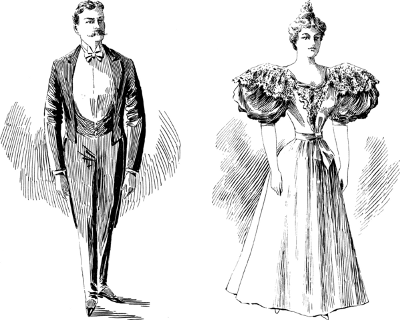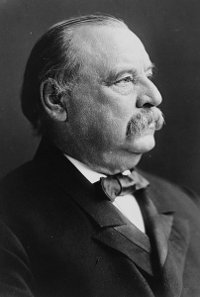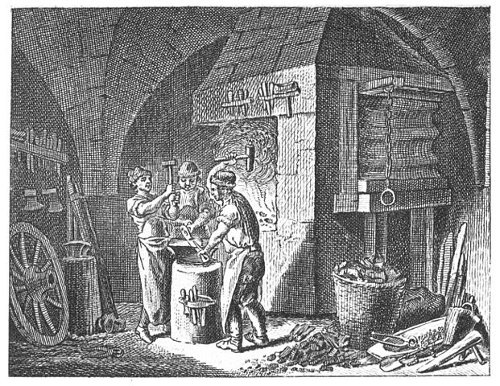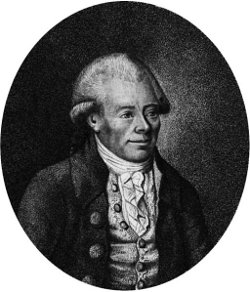
In 1891, while debating “the old, old question whether women’s dress is or is not sensible,” the members of a Brooklyn amateur dramatic company decided to try an experiment. First a woman tried on a man’s clothes:
My! how nice it feels to be able to run up and down stairs in these clothes. You don’t have to think about your clothes at all. Nor about your feet. It’s just splendid! I’d no idea — but my feet feel as if they had clogs on. Don’t you hear them thump? Don’t they look funny? Why, I couldn’t walk far with such weights as these dragging me down. And see my shirt. It won’t stay put. One thing is certain, you feel very free all about your body. … I did not know what to do with my hands or my legs while I was in the parlour. I was not sure of my legs one minute. I didn’t know whether they looked right when I walked; they seem exposed, you know. I wondered how I looked all the time, and when you get to wondering about any part of you, that part of you loses all its pluck. My legs got timid, and in the way. It was not any better when I sat down. Then my hands got big and stupid, and bothered me. The coat tails were in the way, and I couldn’t, for the life of me, think what I had ever seen a man do with his coat tails. The truth is, that I should not wonder if men’s clothes are better than ours, only you’ve got to get used to them. And I should want the coat to have skirts all around it, because you feel so very visible, don’t you know.
Then a man tried on a woman’s:
The queer thing about this whole rig is that you cannot get your mind off the corset. It is so stiff and tight and hot and binding that you forget the rest. I can stand up and lean back against it as if I were leaning against a swing or hammock. When I sit down, if I should lean too far forward I would fall on my face. You cannot keep your balance in the thing. If I try to pick up something from the floor beside me while sitting down, the corset catches me under the arm like a crutch. Sitting or standing, it holds me up like a ramrod — don’t I look so? My arms hang at the sides of it as if they were made afterwards and tacked on, like a doll’s arms. I could not eat a mouthful or take a glass of water with this corset on. Either I or the corset would burst. Just for fun I laid down in the thing, and I had to get Tom to help me up again or I’d have laid there yet. As for the rest of the costume, do you know, I don’t mind it. These things don’t fit, of course; the skirt is too short and the dress won’t button around my stomach; but it seems a fellow could get along with all of it except the corset. It’s queer to feel your legs for the first time. They seem to be let loose inside a sort of box. When I walk I feel the skirt hit against my heels, and when I stand up I feel my legs hot against one another. Their covering is so thin that it amounts to nothing, and so you feel those appendages as you never do in male attire. You don’t know how absurd it is not to be able to see yourself. The bust of this corset and dress stick out under my eyes, and I cannot see anything beneath it except the bottom of this dress. I feel cold half way. I can feel the tops of my stocking plainly by the difference in the temperature where they end.
“I would not dare appear in company in this rig, even if it fitted me; at least not without taking a course of instructions first,” the man said. “You see, I know enough to put my hands in my lap; but they don’t go there. I keep hanging them down by my sides. Then I cannot cross my legs. Every time I try it I get the petticoats and dress all mixed up with my knees. When I sit down I feel as if I was sitting on a pair of long coat-tails all rumpled up. The dress and other things all get into creases and lumps under me. There are some good points about the costume. It is easy round the neck, and your legs are so free that you feel as if you were walking on air; but even in this warm room I would get pneumonia in four hours, for my legs are stone cold and my chest is not much warmer, though my waist is burning hot. Then there is a dragging weight on my hips, while as for the corset — Get out of the room, boys, and let Tom help me off with the blessed thing.”
(From “A Petticoat in Trousers,” Modern Society, Jan. 31, 1891.)







